Bangladesh: Where It All Began
Report by Marc Roussel
A half-century of commitment.
And a status report on the political and humanitarian adventure begun by Bernard-Henri Lévy in East Pakistan in 1971.
Answering the call of André Malraux, the young graduate joins the Mukti Bahini to fight for the independence of what is now Bangladesh.
We went back, cameras in hand, to film improbable reunions and discoveries from half a century ago, to document the inhumanity of the slums of Dhaka, and to reveal the solidarity and dignity of the Rohingya as they struggle to survive against staggering odds in the world’s largest refugee camp.
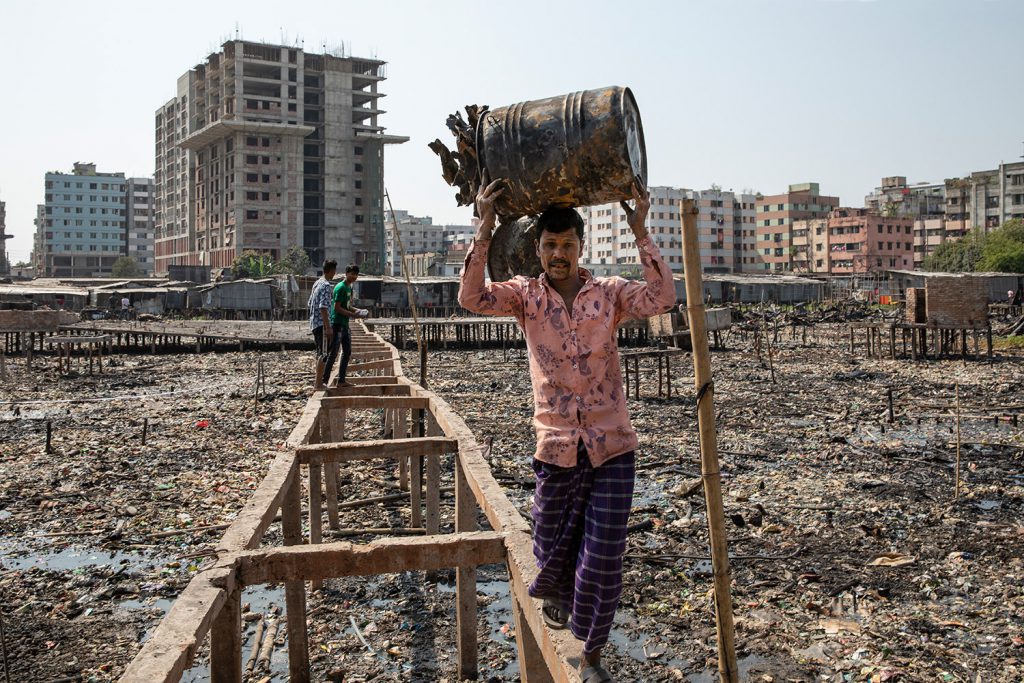
“Still in the middle of Dhaka, the Rupnagar slum burned yesterday down to its pilings. The pestilential cesspool of black water over which the lakeside favela was built is now in the open air.”
Bernard-Henri Lévy, The Will To See
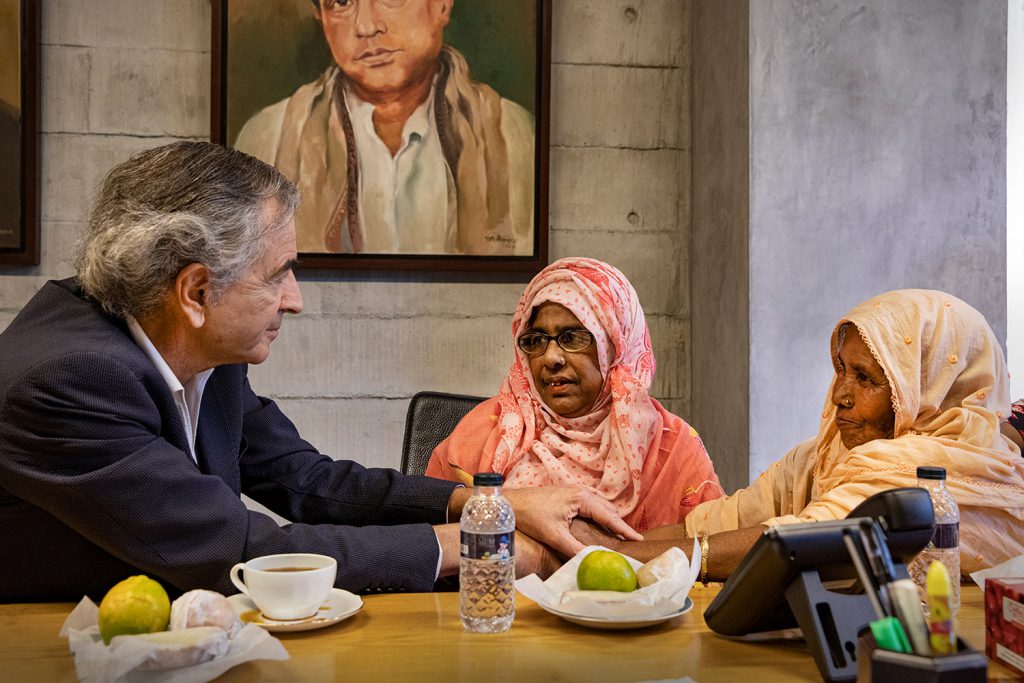
“These old ladies […] are birangona— which literally means national heroines. And they owe that status to the fact that during the war they and four hundred thousand other women were raped by the rabble of the Pakistan Armed Forces. When the natural consequences of those attacks arrived nine months later, in the weeks surrounding the proclamation of independence, President Mujibur Rahman made a historic decision. Instead of shunning or ostracizing them, as would have occurred in most traditional societies, Rahman, the father of the nation, embraced the victims as if they were his own daughters.”
Bernard-Henri Lévy, The Will To See
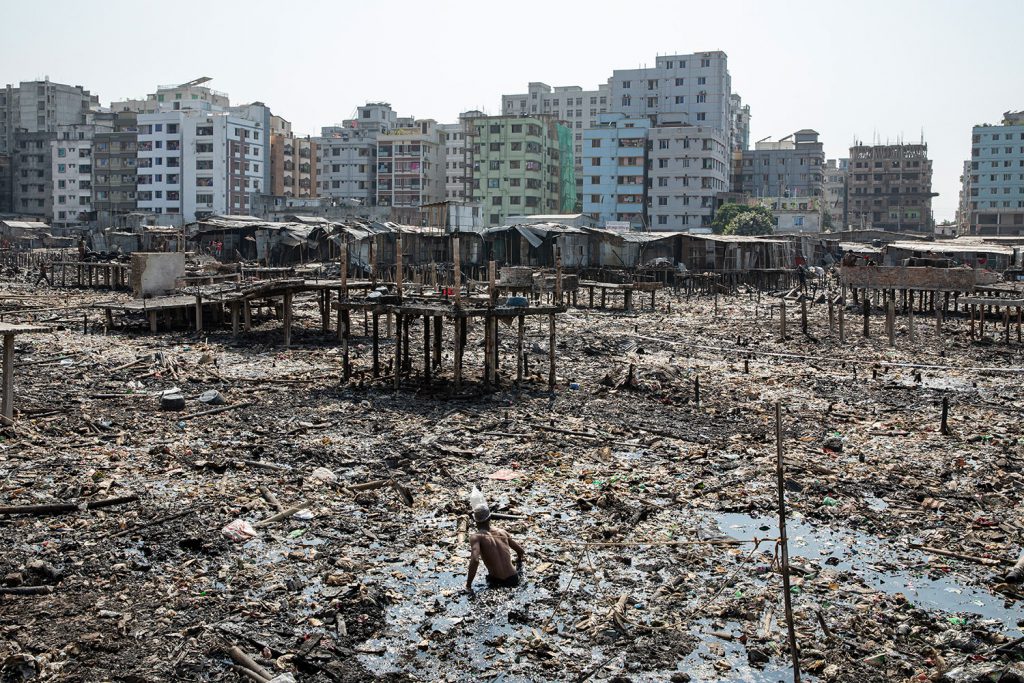
Rupnagar shantytown, still…
“… a man with the eyes of an ascetic, clad in loincloth and mobcap, appears to be doing his ablutions. But no, he is diving repeatedly into the fetid water and dredging it for bits of steel and iron that he will sell for a few takas at the Kawran Bazar flea market…”
Bernard-Henri Lévy, The Will To See
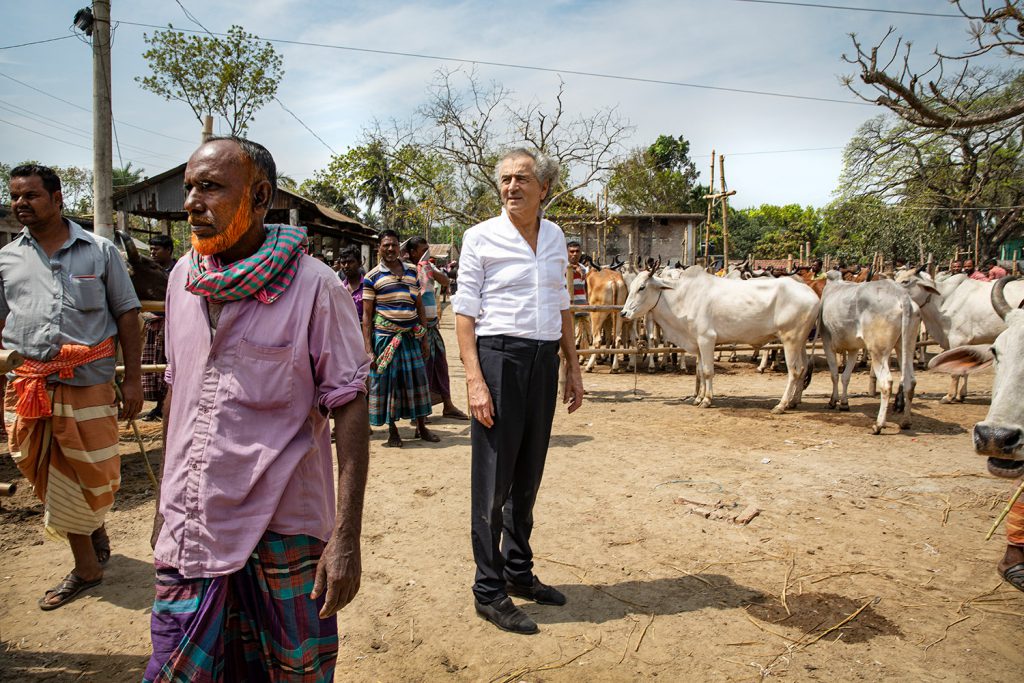
“Yes, Jessore. It was almost fifty years ago. In 1971, with a handful of others, I had answered André Malraux’s call […]. It barely qualified as a city at the time. The airport wasn’t here. Neither was the tangle of colonial-era houses, unfinished new buildings, and mud huts. Nor the population of ragged children, zebu dealers, and discouraged beggars intrigued by this foreigner moved to tears by the festival in his honor. But there is the same pale sky. The same tangy fragrance commingled with pungent whiffs of cooked coconut oil.”
Bernard-Henri Lévy, The Will To See
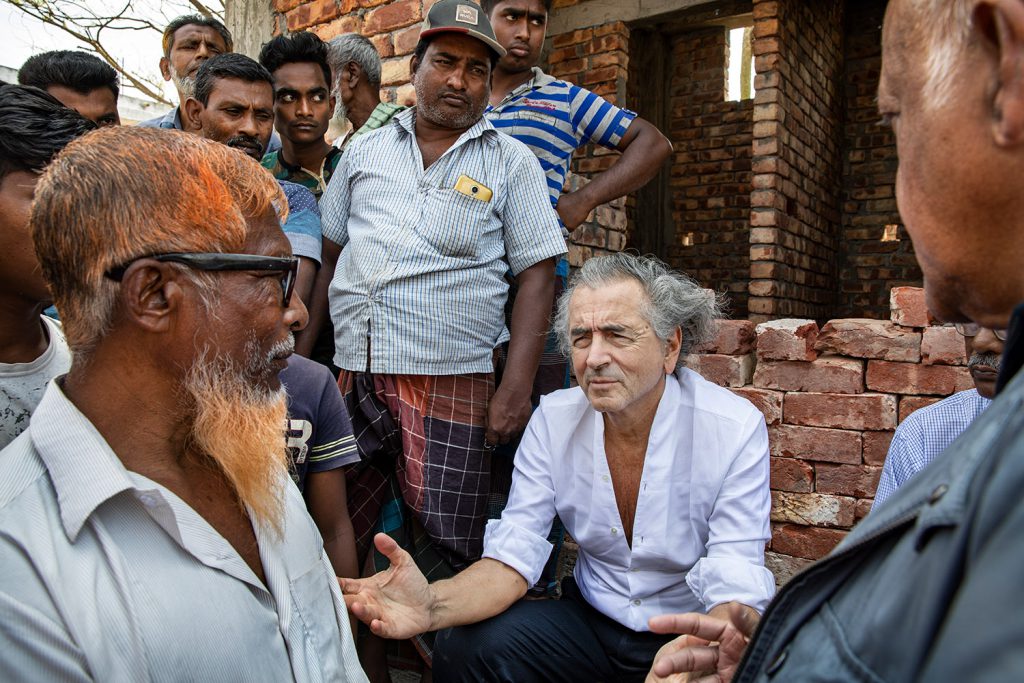
A resident of Jessore, veteran of the fight for the independence of Bangladesh, calls out to Bernard-Henri Lévy. He remembers a young man wearing a yellow jacket who came over to defend the struggle for a free Bengal against the oppression of the Pakistani army. That young man was no other than Bernard-Henri Lévy.
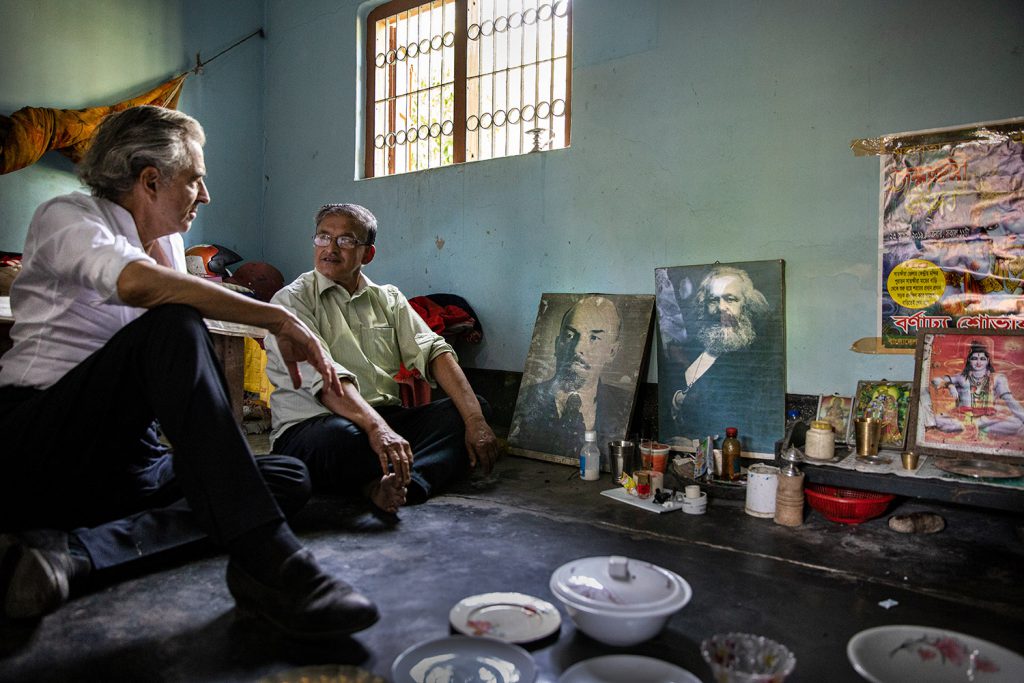
Bernard-Henri Lévy returns to in the room he had occupied in Dhaka.
“I am not sure if I recognize the webbed bed. Or the table on which stand old collections of Bengali poetry. But what is definitely the same is this: on the floor against the wall, near a small altar bearing vials of incense, candles, multicolored devotional images, and holy bells, are two faded black-and-white portraits of Marx and Lenin, worshipped on par with Shiva and Vishnu.”
Bernard-Henri Lévy, The Will To See
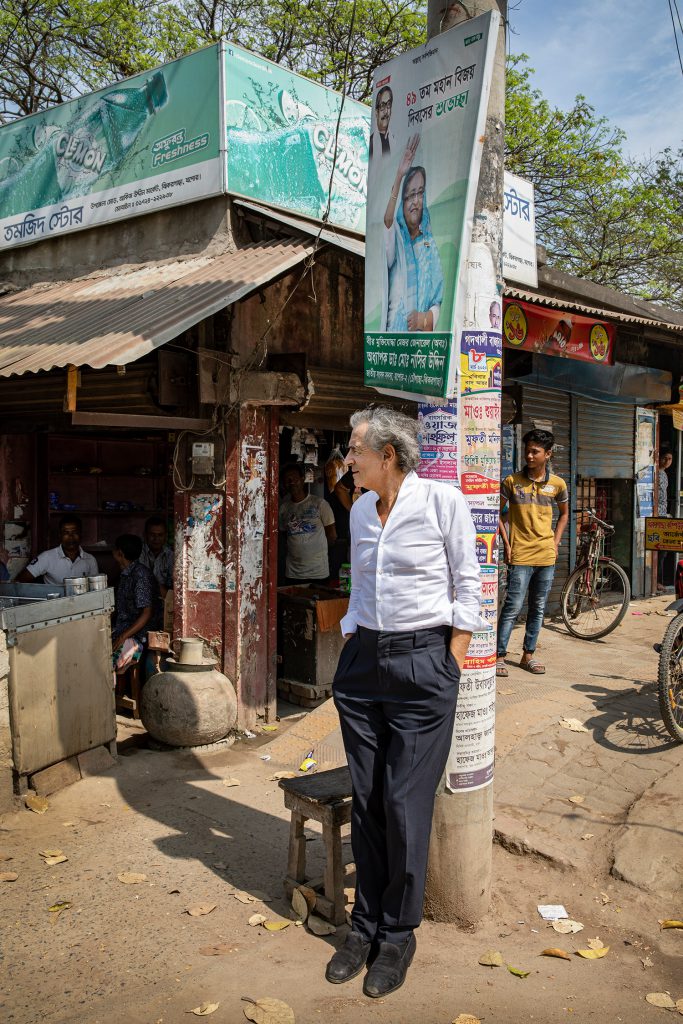
Still in Jessore…
“And, immediately upon leaving the bazaar, on both sides of a badly built road bearing a mad competition of rickshaws, wagons of firewood, and busses packed to the roof (which, with every curve, seemed on the point of toppling), the same bleak plain of rice paddies. The Bangladesh of my twenties.”
Bernard-Henri Lévy, The Will To See
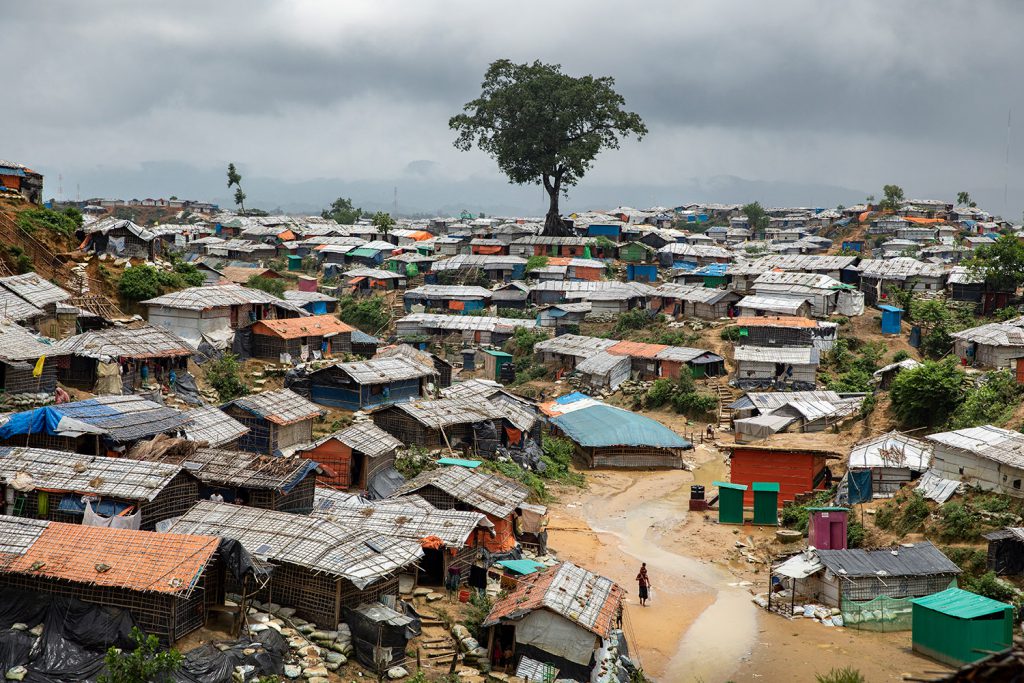
“But as chance would have it, I arrive in Cox’s Bazar, the sprawling refugee camp in which, for three years, nine hundred thousand Rohingyas have fled anti-Muslim persecution by Burma’s Buddhists and its military junta; I arrive just days after visiting Moria, on the Greek island of Lesbos, the landing point for the Syrians that Erdoğan is pushing toward Europe.”
Bernard-Henri Lévy, The Will To See
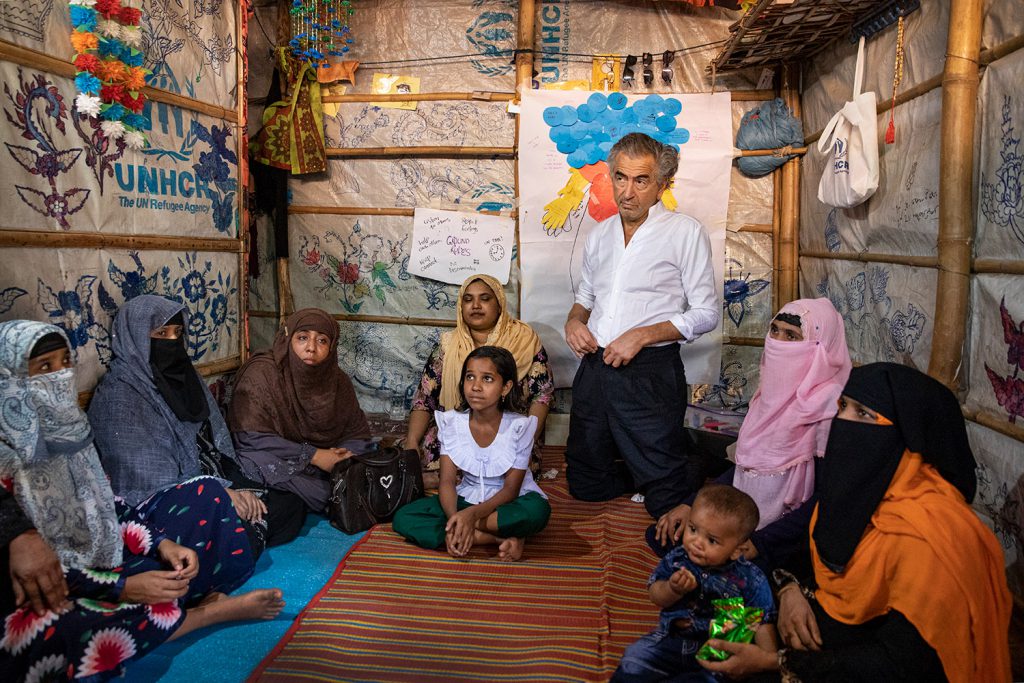
Bernard-Henri Lévy with refugees from Cox’s Bazar camp.
“A lesson in the courage of the Rohingya, who have lost everything but their dignity. A lesson, too, in the humanity of the Bengalis, who have nothing but still find the wherewithal to share that nothing with the nine hundred thousand residents of a living purgatory.”
Bernard-Henri Lévy, The Will To See
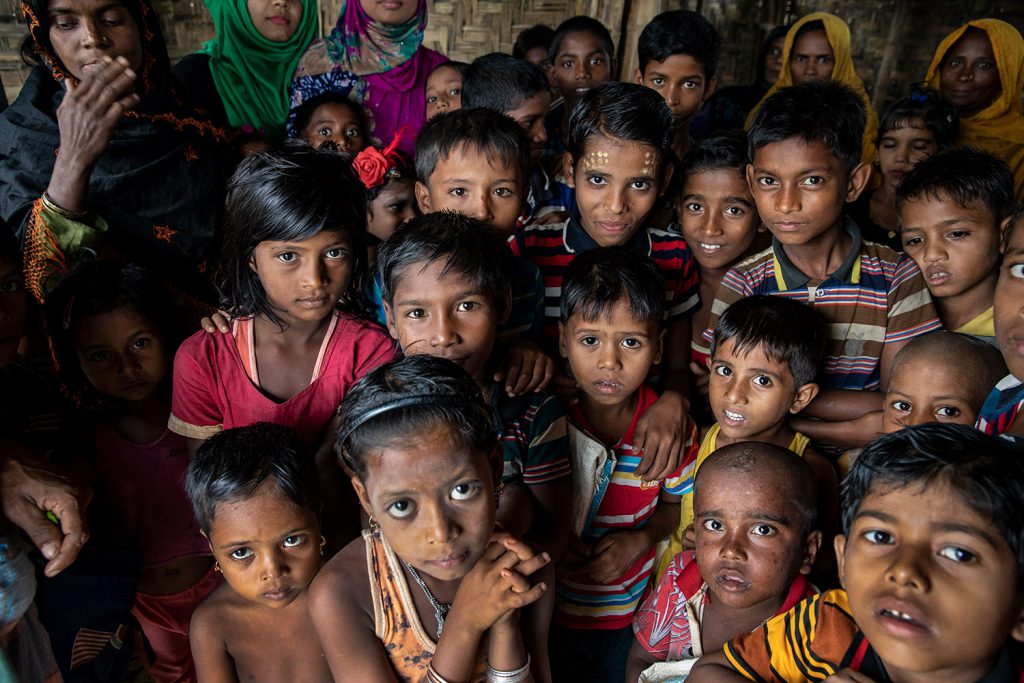
The plight of the children in the Cox’s Bazar camp echoes the tragic fate of other neglected children in Bangladesh, exploited in the textile factories.
“Had I forgotten the sweatshops to which the West subcontracts the jobs it no longer wants to grandchildren of the Mukti Bahini hardly older than twelve?”
Bernard-Henri Lévy, The Will To See
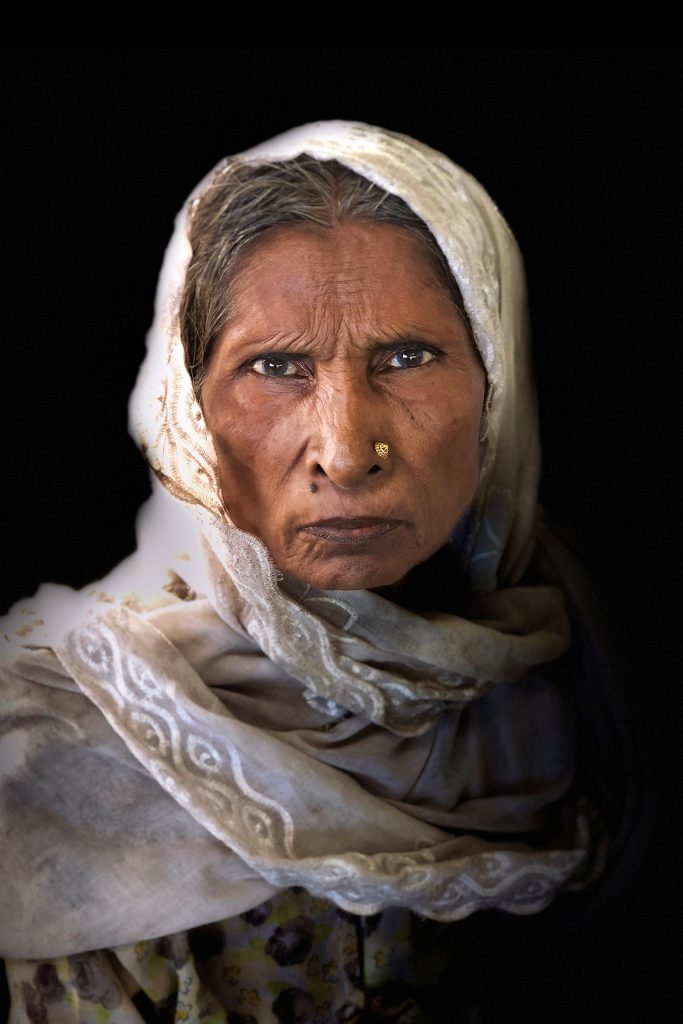
Portrait of a woman refugee at Cox’s Bazar camp, by Marc Roussel
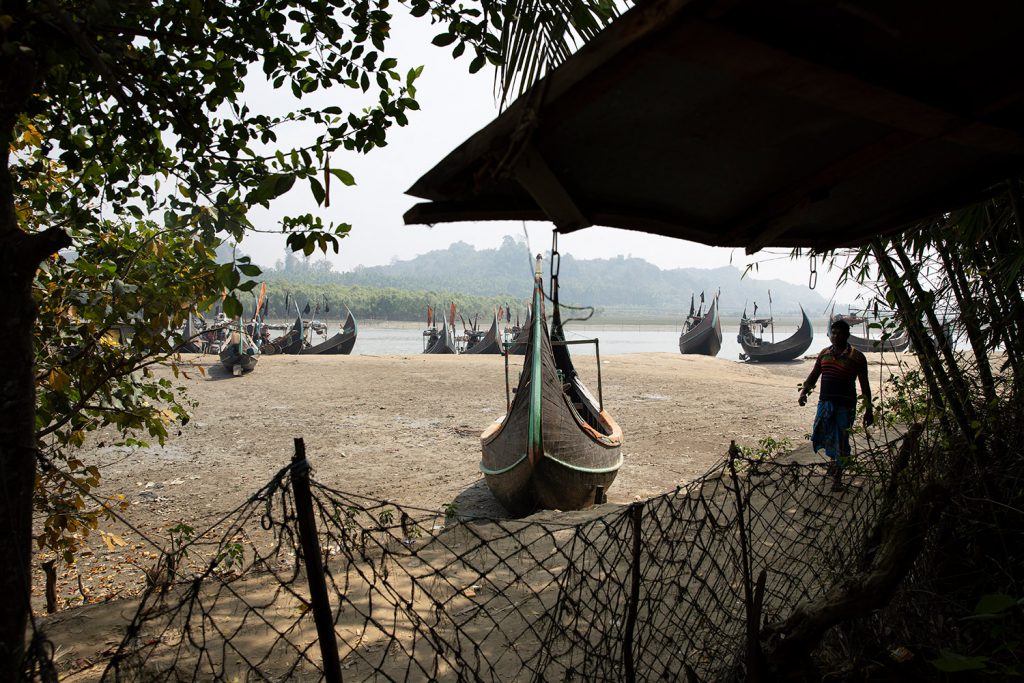
“… if there is one spot in the world threatened by the coming climate catastrophe, it is right here. Bangladesh is a delta nation. It is a land of seven hundred rivers, some of which, like the Ganges and the Brahmaputra, originate deep in the subcontinent and meet here in order to throw themselves into the Gulf of Bengal. […] The archipelago that I remember lying off the shore of Cox’s Bazar is gone. The square islands farther north, with their stunted vegetation, which I do not remember from before: they are all that remains of a former rice paddy…”
Bernard-Henri Lévy, The Will To See
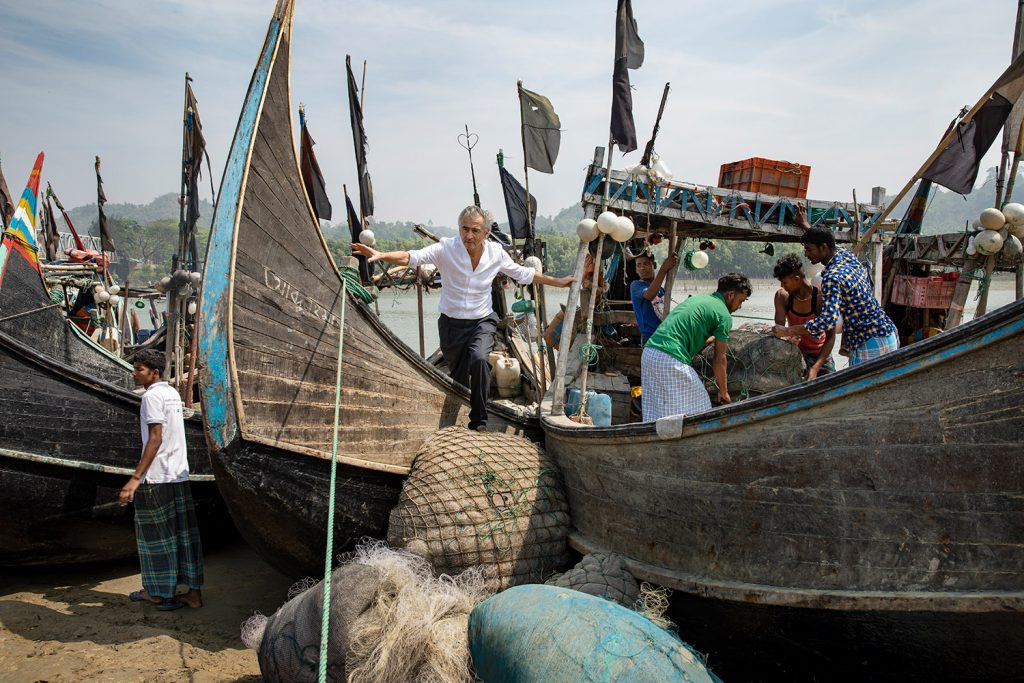
“And those fishing boats seen from the Chittagong road being loaded with nets, barrels of brine, and spare masts: why the strange shape, with the bow and the stern curved up and in like a basket or crescent moon? Is it to raise the bow and make it easier for the boat to clear the sandbars that mark where the land once was? Is it to defy the rising sea? To facilitate fishing in shallow water?
Or is it to appease the monster in this country where, contrary to the poet’s dictum, it is not the desert that grows but the sea? I do not know.”
Bernard-Henri Lévy, The Will To See
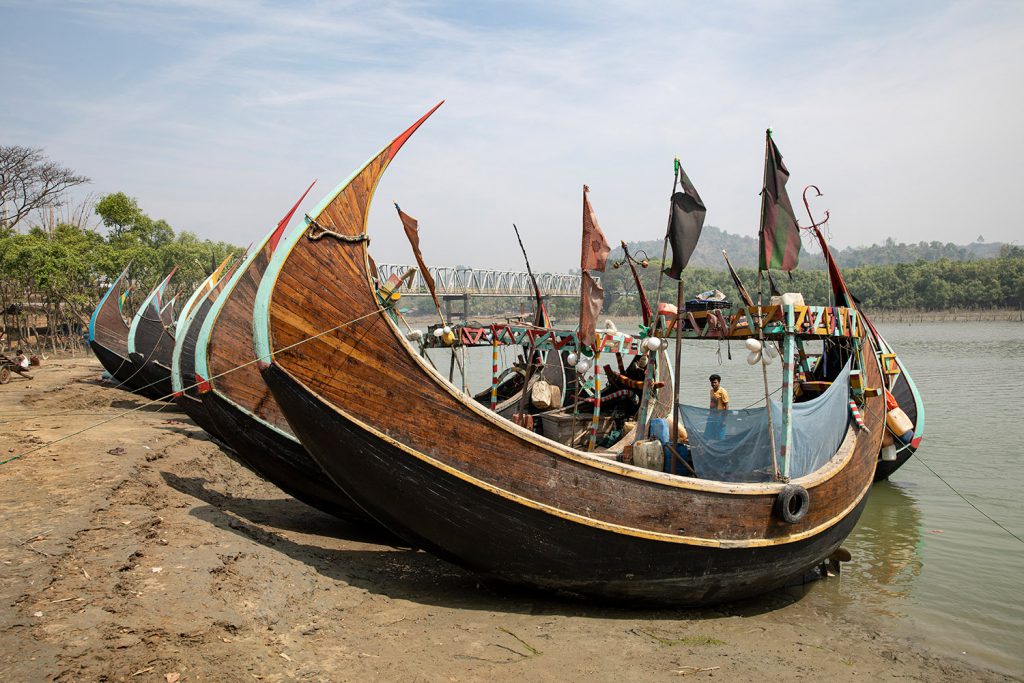
Last stop of the report, on the road to Chittagong.
“Decades ago, I was one of the first to take up the cause of this cursed and splendid country. Fifty years later, I am taking the last flight out for Europe. For the time being, I can only hope and pray.”
Bernard-Henri Lévy, The Will To See